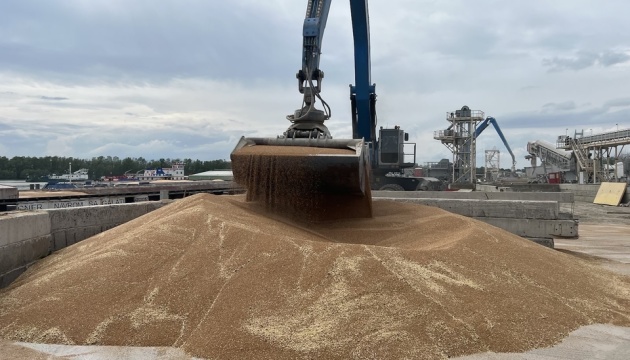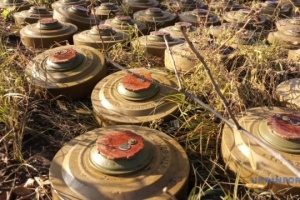
Poland to close border for Ukrainian agri products after Sep 15 - minister
This was reported by the Ministry of Agriculture and Rural Development of Poland on Twitter, Ukrinform saw.
"Even if the EU does not make such a decision, we will close the border for Ukrainian products after September 15. I think that some of the five frontline countries will do the same. This is not against anyone, but for the well-being of Polish farmers," Telus said.
As Ukrinform reported earlier, in July five European Union countries signed a declaration to extend the ban on Ukrainian grain imports to protect the interests of domestic farmers, but food products could still enter the world market through their territories after Russia withdrew from the Black Sea Grain Initiative.
The agriculture chiefs from Bulgaria, Hungary, Poland, Romania, and Slovakia are asking the EU to develop mechanisms that will allow Ukrainian grain and other food products to be delivered to their destinations without affecting the agricultural sector of transit nations.
The European Union has introduced temporary and targeted measures in connection with logistical issues related to the import of a number of agricultural products to five EU member states, all of which, except for Bulgaria, border Ukraine. Currently, wheat, corn, rapeseed, and sunflower seeds originating in Ukraine can be imported into any EU country and continue to be in free circulation in all EU member states except these five countries.
The European Commission reported they were focused on finding solutions after Russia suspended participation in the Black Sea Grain Initiative, and assured that the EU would maintain unwavering support for Ukraine. Despite Poland's objections, the European Commission intends to cancel restrictions on the import of Ukrainian grain.
One of Warsaw's arguments for banning the import of Ukrainian grain to Poland was the import of technical grain, which was later sold as consumer goods, as well as the arrival of a large amount of Ukrainian grain on the Polish market, which affected Polish farmers.
Photo: NurPhoto




